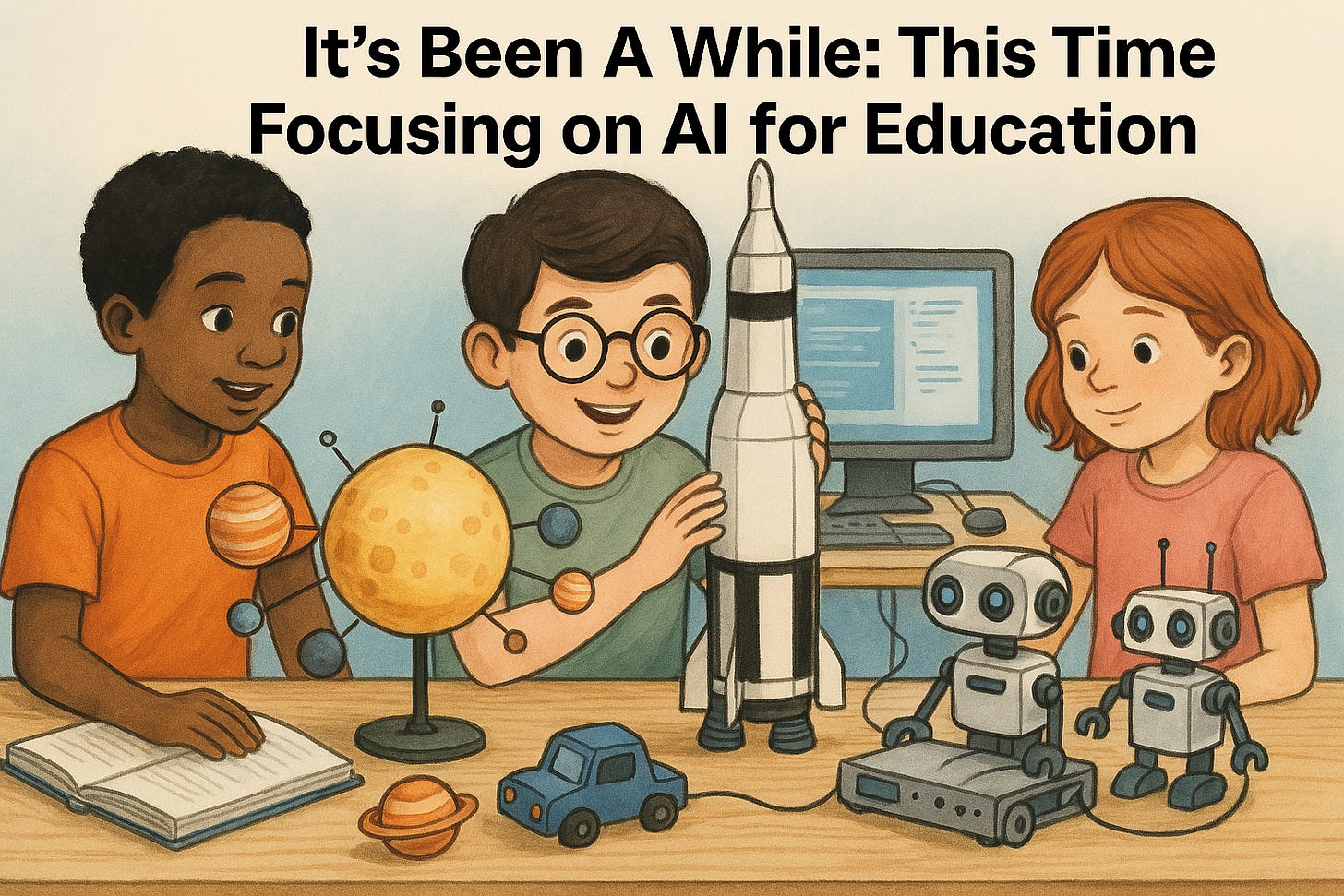It's Been a While - Shifting Focus to AI for Education
Sharing lessons from building and testing AI tools for real classrooms.
Hello again! It’s been a while since my last post came which was probably sometime back in 2024 if I remember correctly.
Why the break? A lot was happening in the AI space, and I wanted to pause and work on a use case that’s been on my mind for a long time: using AI for K-5 education.
I’m a mom. I like being involved in my kid’s studies (not in a helicopter-parent way), but what I care about more is making learning interesting — hoping he enjoys the process and maybe even finds something he loves along the way. Around the same time, AI tools started getting better. Smarter models, stronger multimodal skills, better coding abilities — and it felt like the right moment to start experimenting hands-on. While a lot of companies are building AI tools for education, the focus is usually on high school or college students. Makes sense, since older kids can use the tools directly. But for K-5, it’s different. Kids this young shouldn’t be left using AI tools by themselves. Instead, we should equip parents, teachers, and educators to design better activities and experiences. AI should stay behind the scenes, helping adults create games, maps, and explorations that make learning more engaging and relevant.
From my own experience, finding genuinely good learning material has always been hard. It’s either too simple, too complicated, or full of distractions. So naturally, the question became: could AI finally help create adaptive, ad-free, genuinely useful learning experiences?
That’s what I’ve been testing — using AI to create simple games, activities, and learning aids for young kids, always with a parent or educator in the loop. If you were to scroll through my X posts, you’d see a few of these small experiments already, for instance:
I’m still experimenting and learning. Tools built for teachers and educators should be easy to use but powerful enough to actually help them do their jobs better. Going forward, expect posts from me with quick notes from these experiments — what worked, what didn’t, and what we can do to make these tools better.





